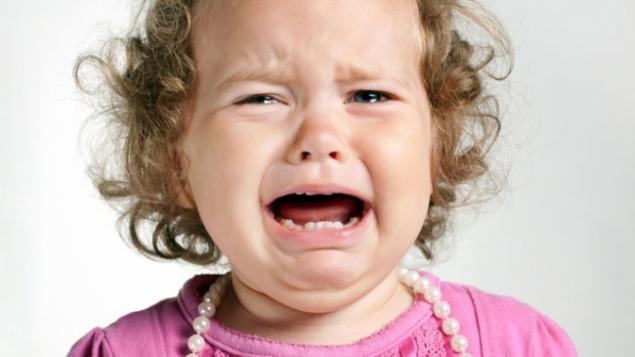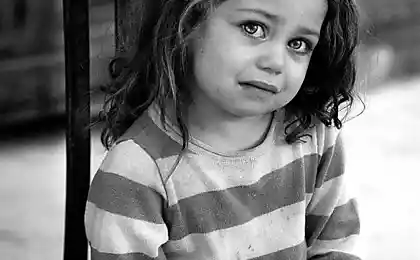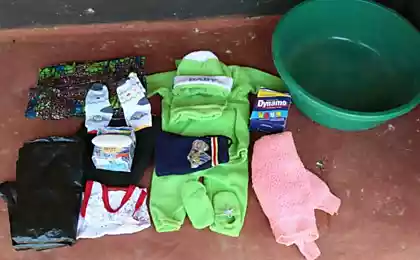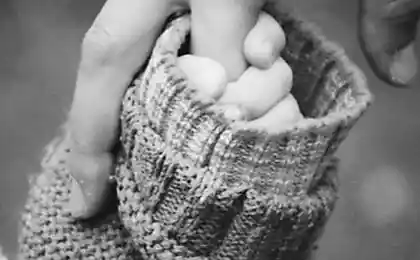479
Children's crying. Causes and solutions
Our mind is so constituted that a baby crying is one of the strongest stimuli. A baby crying can lead us to a whole range of emotions — from the desire to immediately help to bouts of rage and despair. How to determine why the baby is crying and how to behave in a given situation?

TEARS causes of Children's anxiety, tearfulness and emotional significantly higher than those same qualities in adults. And that's fine, because the child's psyche is still fragile. Minor for us, the reason may be for a child of this tragedy. The child with tears is reacting to all the negative aspects in his life, tears for him – only expression of emotion that he has not learned to restrain. But the children also unexpectedly and quickly have the ability to switch from bad to good, forgetting about the tears.
So the first thing is to advise parents to treat children's tears quieter. The younger the child, the more often he expresses his negative emotions, namely tears.
If you notice that the baby cries too often and a lot (at least from peers), there may be several reasons.
First and foremost, we can talk about the temperament and individual characteristics of the nervous system of the child. Each of us by nature is given a weak or a strong nervous system. People with a weak nervous system and in adulthood have a high sensitivity, vulnerability and a tendency to melancholy.
In children, these features are more pronounced – the child from the first days of life are characterized by high anxiety, not sleeping well and cries a lot. In addition, you may notice that the child is sensitive to sad episodes in cartoons, scary stories, does not tolerate the shouting and noise.
MISTAKES PARENTS Often mistake of parents is that they try to overcome the tearfulness of such a child-melancholic, urging him not to cry and sometimes even ridiculing tears, especially if we are talking about the boy. In fact, such an upbringing turns out that the natural tearfulness is added the uncertainty of the child, rejection itself.
Over time, the psyche of the child increases, develops self-control, and he will be less crying. But it is useful in communicating with the child to consciously focus his attention on the good aspects of life, gently to switch it out with the negative, not allowing "dwell" on the bad for a long time.
If crying of the child suddenly appeared, the reason in the first place, is to look for the presence of any chronic stress. Adaptation to kindergarten or school, parents ' divorce or conflict within the family, problems in relationships with peers – all these factors weaken the nervous system of the child, making it excitable.
Because it is important to see the true cause of internal stress of the child and to overcome it, not to fight back the tears, as a consequence. Often the child becomes whiny and during the age of crisis (one year, three and seven years). With the crisis period, this crying usually goes away by itself.
HOW TO RESPOND? Sometimes baby crying is not the expression of internal tension or weakness, but only a way of behavior which prove to be efficient. Observe in what situations the child begins to cry. If tears are always manifested only in the situation of a parental prohibition and restrictions (for example, sad cartoon does not cause the child's tears), and the cry often goes into a tantrum you should think about why this method of exposure has become for the child an effective way to succeed from their parents.
A small child is not consciously manipulated by tears, but if experience shows that the tears can always seek the repeal of requirements and fulfillment of desires, this method often becomes his "weapon".
We should also mention the more serious reasons for a child's tearfulness. For example, it is about childhood depression or experience of violence. If you notice that the child suddenly became very tearful, tense, while he has a decreased interest in life and ceased to captivate a hobby, socializing with family and friends decreased, appeared nervous tics, nightmares and other serious symptoms makes sense to go to a child psychologist for a detailed diagnosis of the emotional state of the child.
Love your children and try to understand the cause, and not to eradicate the consequences. published
P. S. And remember, just changing your mind — together we change the world! ©
Join us in Facebook , Vkontakte, Odnoklassniki
Source: www.domashniy.ru/article/psihologiya-otnosheniy/semejnye-otnosheniya/detskaya_plaksivost__prichiny_i_resheniya.html

TEARS causes of Children's anxiety, tearfulness and emotional significantly higher than those same qualities in adults. And that's fine, because the child's psyche is still fragile. Minor for us, the reason may be for a child of this tragedy. The child with tears is reacting to all the negative aspects in his life, tears for him – only expression of emotion that he has not learned to restrain. But the children also unexpectedly and quickly have the ability to switch from bad to good, forgetting about the tears.
So the first thing is to advise parents to treat children's tears quieter. The younger the child, the more often he expresses his negative emotions, namely tears.
If you notice that the baby cries too often and a lot (at least from peers), there may be several reasons.
First and foremost, we can talk about the temperament and individual characteristics of the nervous system of the child. Each of us by nature is given a weak or a strong nervous system. People with a weak nervous system and in adulthood have a high sensitivity, vulnerability and a tendency to melancholy.
In children, these features are more pronounced – the child from the first days of life are characterized by high anxiety, not sleeping well and cries a lot. In addition, you may notice that the child is sensitive to sad episodes in cartoons, scary stories, does not tolerate the shouting and noise.
MISTAKES PARENTS Often mistake of parents is that they try to overcome the tearfulness of such a child-melancholic, urging him not to cry and sometimes even ridiculing tears, especially if we are talking about the boy. In fact, such an upbringing turns out that the natural tearfulness is added the uncertainty of the child, rejection itself.
Over time, the psyche of the child increases, develops self-control, and he will be less crying. But it is useful in communicating with the child to consciously focus his attention on the good aspects of life, gently to switch it out with the negative, not allowing "dwell" on the bad for a long time.
If crying of the child suddenly appeared, the reason in the first place, is to look for the presence of any chronic stress. Adaptation to kindergarten or school, parents ' divorce or conflict within the family, problems in relationships with peers – all these factors weaken the nervous system of the child, making it excitable.
Because it is important to see the true cause of internal stress of the child and to overcome it, not to fight back the tears, as a consequence. Often the child becomes whiny and during the age of crisis (one year, three and seven years). With the crisis period, this crying usually goes away by itself.
HOW TO RESPOND? Sometimes baby crying is not the expression of internal tension or weakness, but only a way of behavior which prove to be efficient. Observe in what situations the child begins to cry. If tears are always manifested only in the situation of a parental prohibition and restrictions (for example, sad cartoon does not cause the child's tears), and the cry often goes into a tantrum you should think about why this method of exposure has become for the child an effective way to succeed from their parents.
A small child is not consciously manipulated by tears, but if experience shows that the tears can always seek the repeal of requirements and fulfillment of desires, this method often becomes his "weapon".
We should also mention the more serious reasons for a child's tearfulness. For example, it is about childhood depression or experience of violence. If you notice that the child suddenly became very tearful, tense, while he has a decreased interest in life and ceased to captivate a hobby, socializing with family and friends decreased, appeared nervous tics, nightmares and other serious symptoms makes sense to go to a child psychologist for a detailed diagnosis of the emotional state of the child.
Love your children and try to understand the cause, and not to eradicate the consequences. published
P. S. And remember, just changing your mind — together we change the world! ©
Join us in Facebook , Vkontakte, Odnoklassniki
Source: www.domashniy.ru/article/psihologiya-otnosheniy/semejnye-otnosheniya/detskaya_plaksivost__prichiny_i_resheniya.html
Oh, the comfort zone...
The Nobel prize in medicine awarded to scientists for the fight against worms-parasites and malaria























